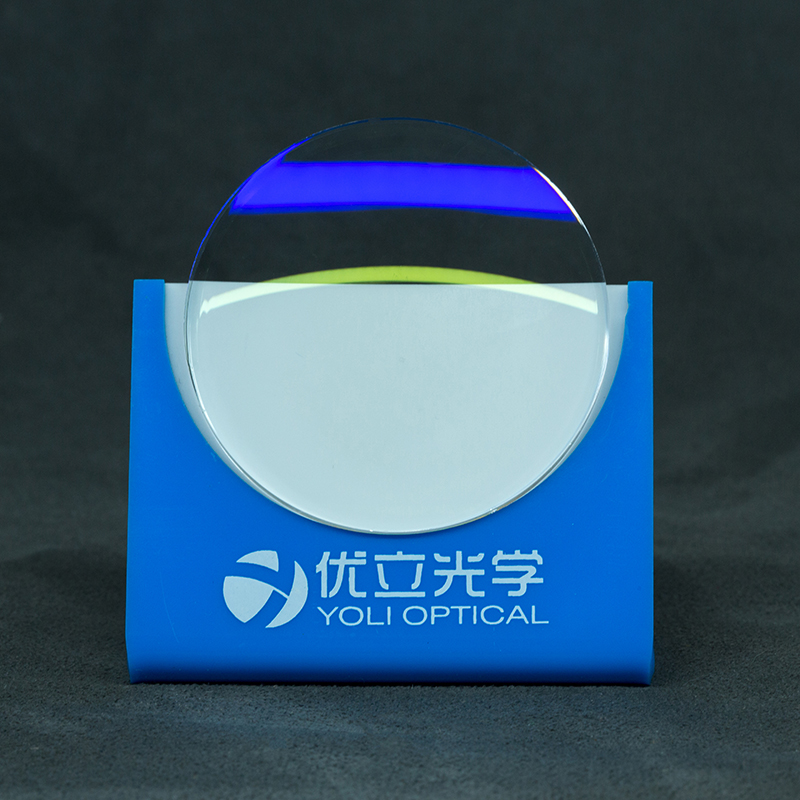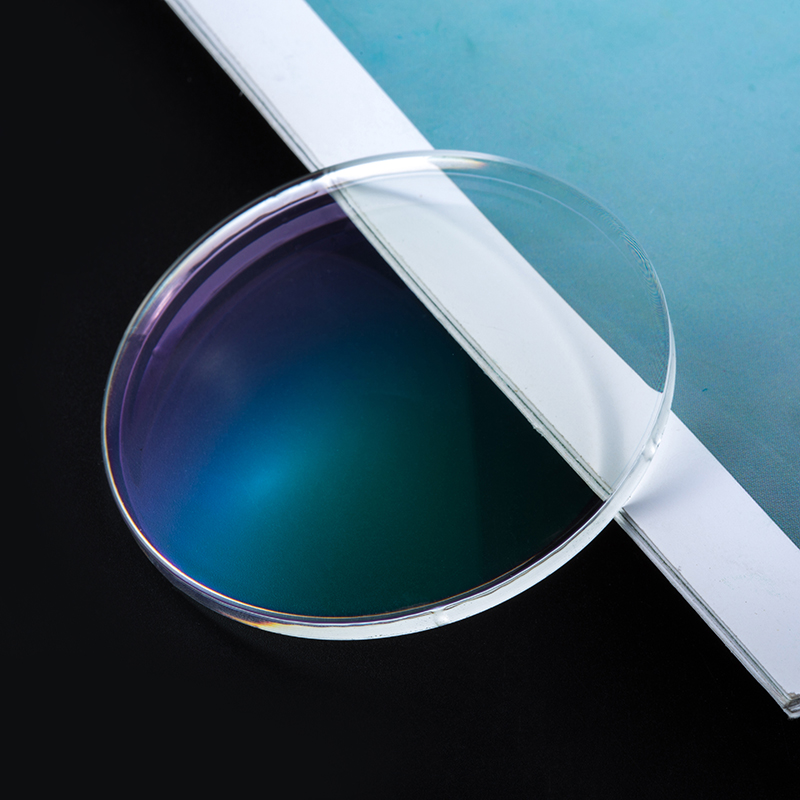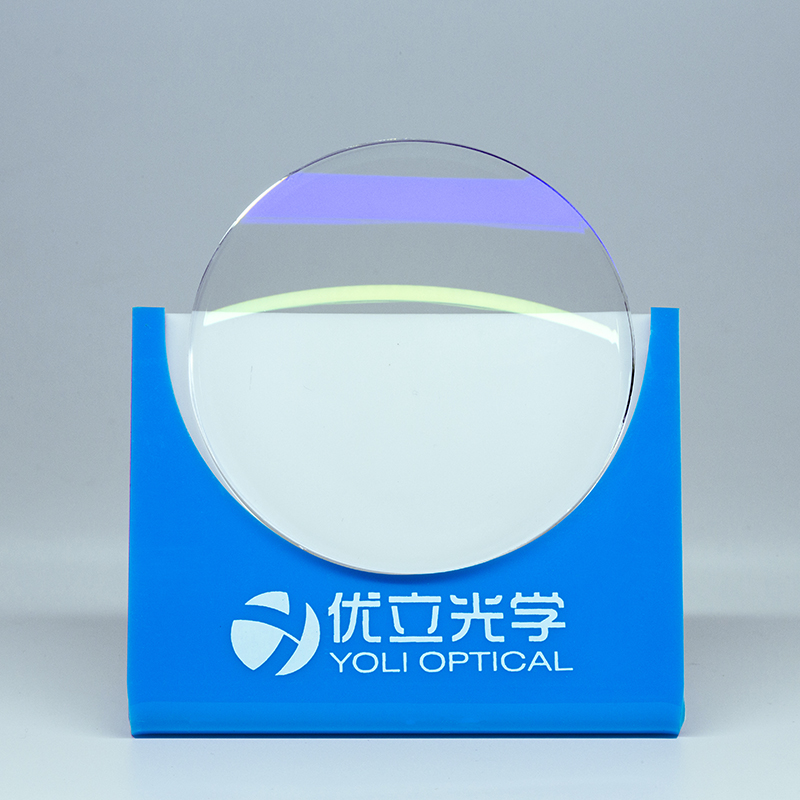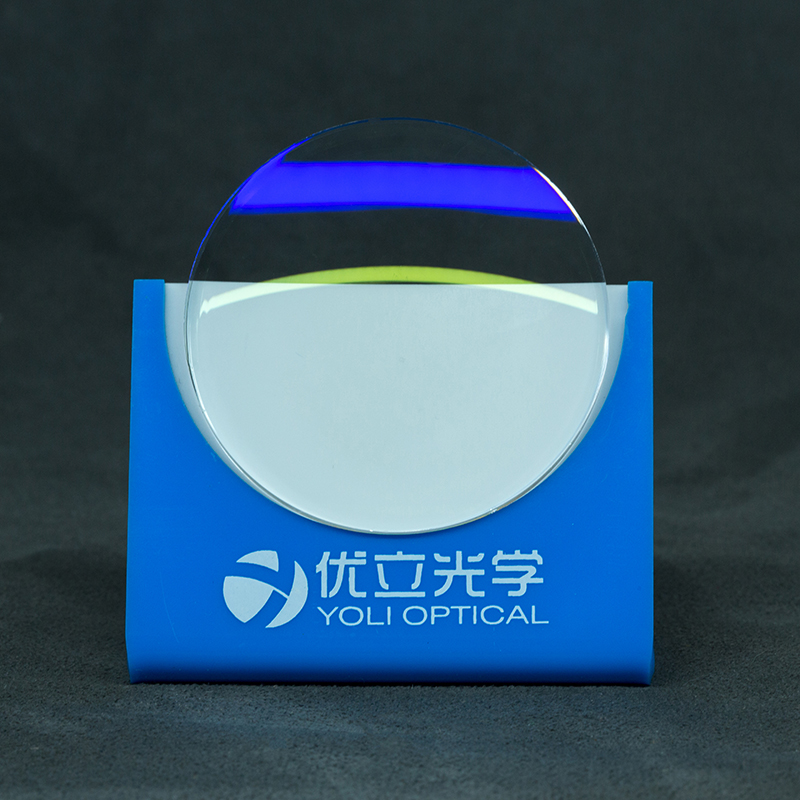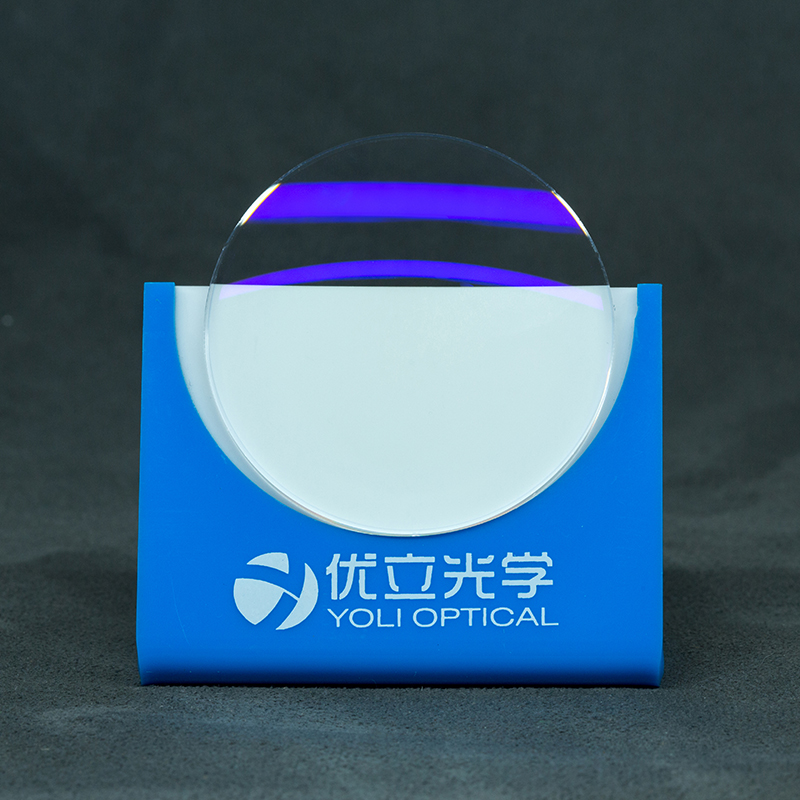
Wholesale Photochromic Blue Factory – Monomer Blue Block Photochromic Progressive – YOLI
Wholesale Photochromic Blue Factory – Monomer Blue Block Photochromic Progressive – YOLI Detail:
Light-Responsive Photochromic Lens
Photochromic lenses are lenses that darken when exposed to ultraviolet (UV) light. These lenses have a special feature that protects your eyes from UV light by darkening. The glasses progressively darken over a few minutes when you are in the sun.

The time to darken varies by brand and several other factors such as the temperature, but they typically darken within 1-2 minutes, and block about 80% of the sunlight. The photochromic lenses also lighten to complete clarity when indoors within 3 to 5 minutes. They will variably darken when partially exposed to UV light – such as on a cloudy day.
These glasses are perfect when you are going in and out of UV (sunlight) on a regular basis.

Blue Block Photochromic Lens
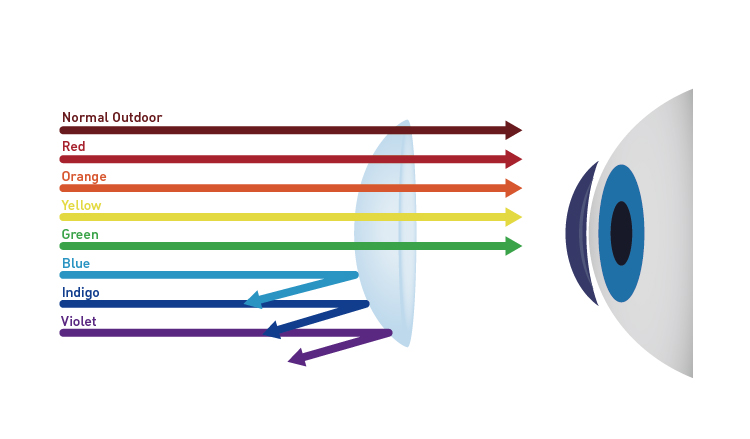
Blue Block
Blue block photochromic lenses are designed for different purpose, they do have blue light blocking capabilities.
While UV light and blue light are not the same thing, blue light can still be harmful to your eyes, especially through prolonged exposure to digital screens and direct sunlight. All invisible and partially visible light can have negative side effects to your eye health. Blue block photochromic lenses protect against the highest energy level on the light spectrum, which means they also protect against blue light and are great for computer use.
Progressive
Progressive lenses are technologically advanced lenses that are also known as no-bifocals. Because, they encompass a graduated range of vision varying from a distant zone to intermediate and near zone, enabling a person to view far and near objects and everything in between. They are costly as compared to bifocals but they eliminate the lines that are visible in bifocal lenses, ensuring a seamless view.
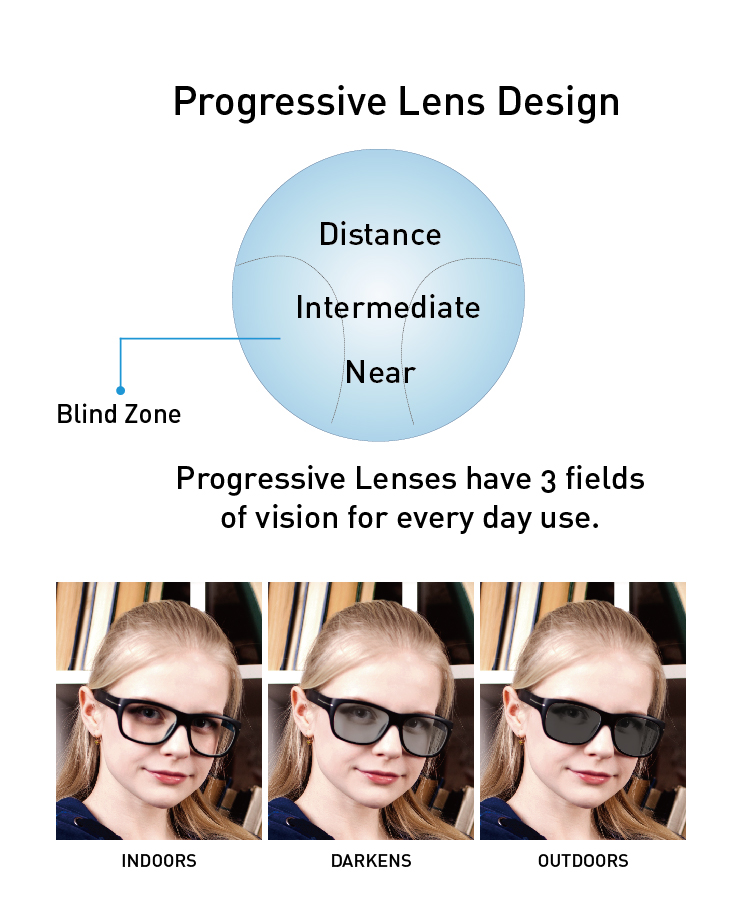
People suffering from Myopia or near-sightedness, may benefit from this type of lenses. Because, in this condition, you can view closer objects clearly but those that are at a distance will appear blurry. Hence, progressive lenses are perfect for correcting different areas of vision and reduce the chances of headache and eyestrain caused by computer use and squinting.
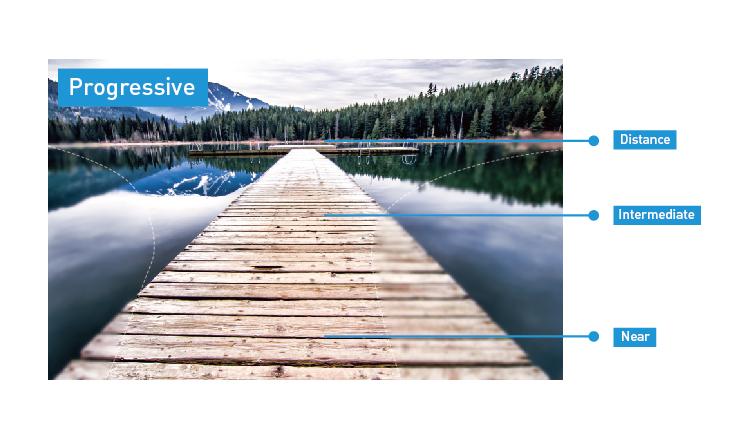
Product detail pictures:
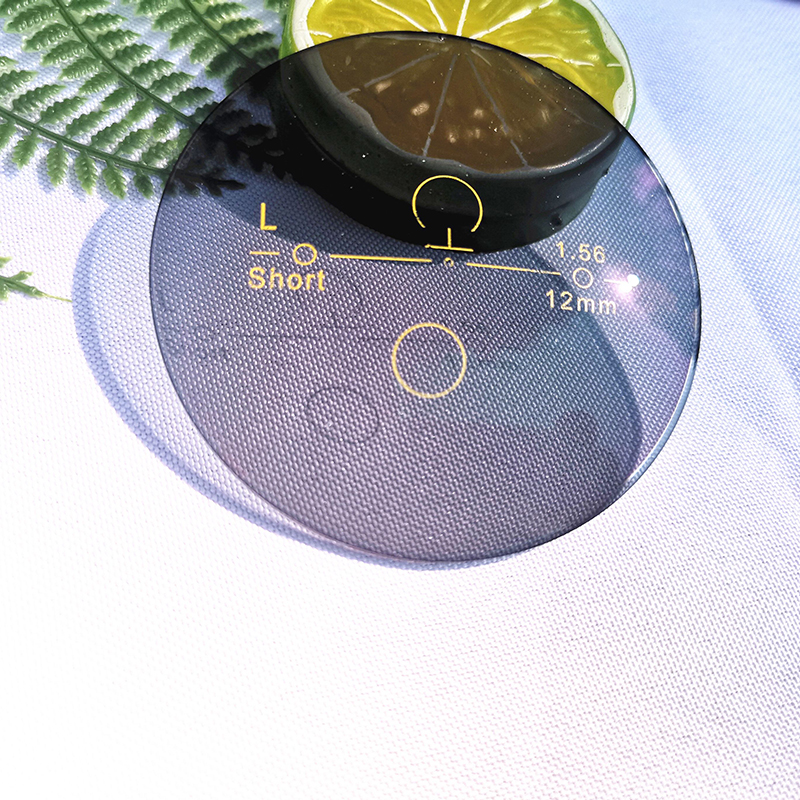


Related Product Guide:
Our eternal pursuits are the attitude of "regard the market, regard the custom, regard the science" plus the theory of "quality the basic, have faith in the main and management the advanced" for Wholesale Photochromic Blue Factory – Monomer Blue Block Photochromic Progressive – YOLI , The product will supply to all over the world, such as: venezuela, Brazil, Jersey, Due to our dedication, our products are well known throughout the world and our export volume continuously grows every year. We will continue to strive for excellence by providing high quality products that will exceed the expectation of our customers.
In general, we are satisfied with all aspects, cheap, high-quality, fast delivery and good procuct style, we will have follow-up cooperation!

